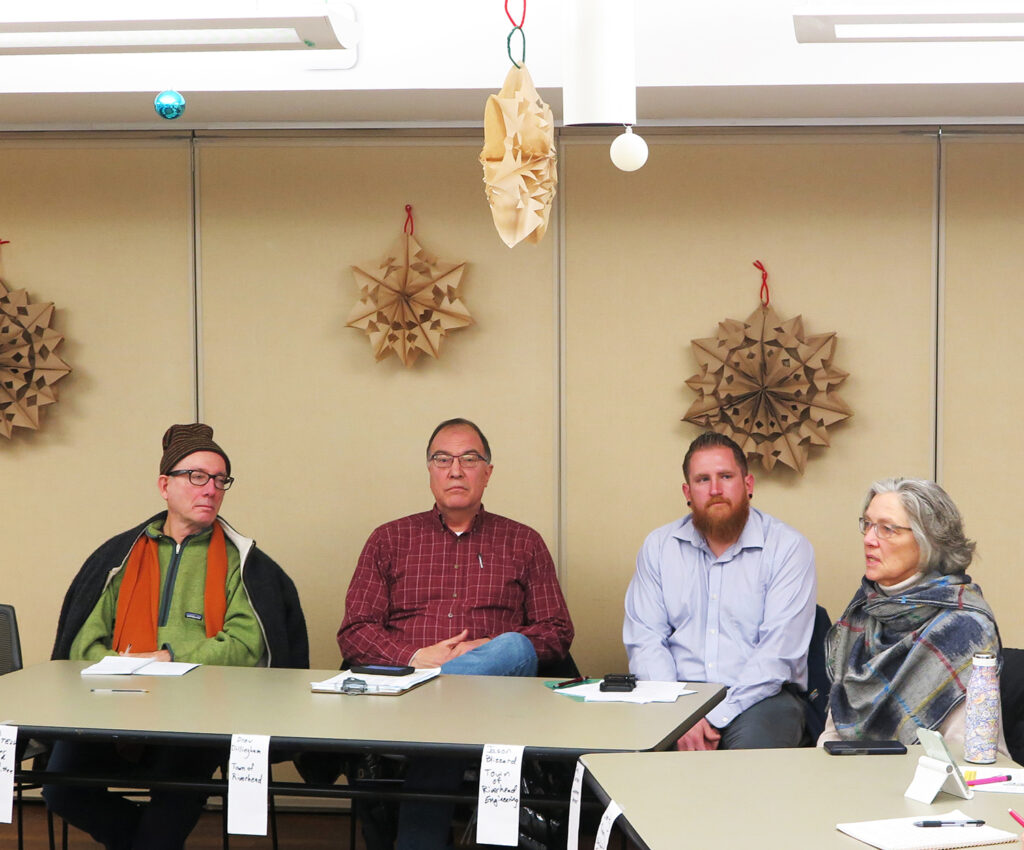Meeting at Shelter Island Library brings innovation, organization to managing waste

The gathering was fertile in every sense of the word.
On Friday, Jan. 19, the Peconic Bioregion Alliance gathered online and in-person at the Shelter Island Public Library to share their ideas and experience with the management of food waste.
The Alliance is an organization with members from Riverhead to Orient and Montauk. These volunteers, municipal employees, and appointed and elected officials, share a mission: to divert 100% of their town’s residential food scraps to soil amendments and compost by 2030.
The facts around food waste are sobering, especially for municipalities in New York, where food waste is the largest stream of waste by volume, and a 40% reduction of C02 is mandated by 2030. Mary Morgan, a co-founder of Drawdown East End — an environmental/conservation organization — estimated that full diversion of food waste would achieve one-third of that goal.
Senior Planner for Sylvester Manor Sara Gordon described the development of the compost program implemented by farm manager Cristina Cosentino in 2020 on Shelter Island. Ms. Gordon announced that the program, which has expanded over the years, is now open to the entire Shelter Island community, effective immediately.
Kitchen food scraps (free of meat, oils, plastic, staples, and stickers) can now be brought to bins beside the Sylvester Manor Farmstand gate on Manwaring Road.
Riverhead became the first municipally-operated food scrap drop-off location on Long Island on May 11, 2023. Jason Blizzard, who was a key figure in establishing the program, described the results so far. Riverhead has diverted over 20,000 pounds of food scraps to date by registering residents, schools, and the Senior Center to drop off scraps, reducing the waste flow to incinerators and creating compost.
Mr. Blizzard also discussed the experimental use of a railroad car-sized composter called “The Dungster,” which is allowing Riverhead to process scraps into usable compost in three weeks, rather than the usual three months.
Gloria Frazee started East Hampton Compost, a drop-off compost service that was embraced by the community in its first year of operation. Tony Romano of the Ecological Culture Initiative expanded his Hampton Bays-based food scrap program this year, offering participants a bucket of soil amended with seaweed as well as compost every three months in return for regularly dropping off their food waste.
The Alliance plans to meet for a third summit next year to discuss new projects, as well as the ongoing development of existing food scrap programs on the East End.








